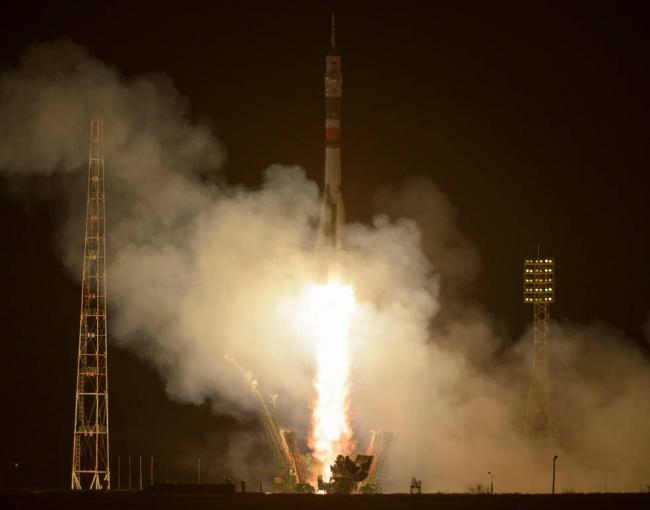
New crew launches to space station to continue scientific research
The Soyuz spacecraft carrying Peggy Whitson of NASA, Oleg Novitskiy of Roscosmos and Thomas Pesquet of ESA (European Space Agency), is scheduled to dock with the space station’s Rassvet module at 5:01 p.m. Saturday, Nov. 19.
NASA TV coverage of docking will begin at 4:15 p.m. Hatches are scheduled to open about 7:35 p.m., with NASA TV coverage starting at 6:45 p.m.
The arrival of Whitson, Novitskiy and Pesquet returns the station's crew complement to six. The three join Expedition 50 Commander Shane Kimbrough of NASA and cosmonauts Sergey Ryzhikov and Andrey Borisenko.
The Expedition 50 crew members will spend over four months conducting more than 250 science investigations in fields such as biology, Earth science, human research, physical sciences and technology development.
Upcoming research includes how lighting impacts the overall health and well-being of crew members, and how microgravity affects tissue regeneration in humans and the genetic properties of space-grown plants.
In February, Whitson will become the first woman to command the space station twice. Her first tenure as commander was in 2007, when she became the first woman to hold this post. Whitson has an advanced degree in biochemistry, and prior to her selection as an astronaut candidate in 1996, she served in prominent medical science research and supervisory positions at NASA.
The crew members are scheduled to receive three cargo craft delivering several tons of food, fuel, supplies and research to the station, as well as new lithium ion batteries to replace the nickel-hydrogen batteries currently used on the station to store electrical energy generated by the station’s solar arrays. These will be installed during a series of spacewalks currently scheduled for January.
Whitson, Novitskiy and Pesquet will remain aboard the station until next spring. Kimbrough, Ryzhikov and Borisenko are scheduled to remain aboard the station until late February.
For more than 15 years, humans have been living continuously aboard the International Space Station to advance scientific knowledge and demonstrate new technologies, making research breakthroughs not possible on Earth that also will enable long-duration human and robotic exploration into deep space, including the Journey to Mars.
A truly global endeavor, more than 200 people from 18 countries have visited the unique microgravity laboratory that has hosted more than 1,900 research investigations from researchers in more than 95 countries.
Image Credits: NASA/Bill Ingalls
Support Our Journalism
We cannot do without you.. your contribution supports unbiased journalism
IBNS is not driven by any ism- not wokeism, not racism, not skewed secularism, not hyper right-wing or left liberal ideals, nor by any hardline religious beliefs or hyper nationalism. We want to serve you good old objective news, as they are. We do not judge or preach. We let people decide for themselves. We only try to present factual and well-sourced news.







